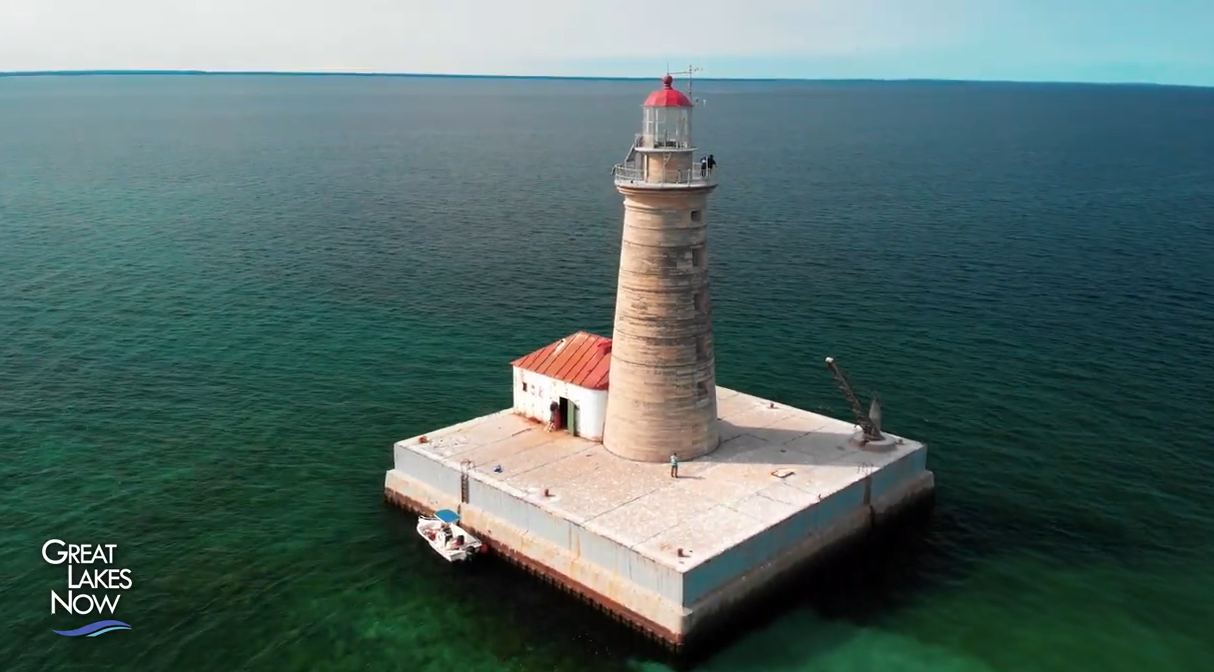The Great Lakes Commission, Great Lakes Fishery Commission, and International Joint Commission are all tasked with varying aspects of management in the Great Lakes. On Wednesday, they all gathered ahead of a Washington, D.C. event honoring the region to sign a groundbreaking formal agreement. Going forward, the three organizations will work together to protect local ecosystems and the economies that depend on them.
The memorandum of understanding directs the commissions to identify overlapping areas of concern and devise a collaborative approach to addressing them.
“Policymakers hear a lot from a lot of people,” said Marc Gaden, executive secretary of the Great Lakes Fishery Commission. “The more united you are in messaging, the more effective you can be in communicating your needs to the policymakers.”
The Great Lakes Commission safeguards the region’s water resources, and the Great Lakes Fishery Commission does the same for its fisheries. Meanwhile, the International Joint Commission fosters peaceful relations between the United States and Canada.
“We all have very different specific missions as outlined in the treaty,” said Mr.Gaden. “But we all share the same objective, and that is doing everything we can to advance Great Lakes restoration, to recommend good policies, to base decisions on science and to communicate with elected officials on why they need to take the steps that they need to take.”
Some of the challenges the Great Lakes region faces today affect all three commissions, including habitat loss, the spread of invasive species, worsening harmful algal blooms, and climate change.
“Anything that emerges as a stressor or a threat to water quality can serve as a disruptor for things like commercial fishing, recreational fishing, the ability to have commerce, transportation, recreation in our region,” said Heather Stirratt, Great Lakes regional office director for the International Joint Commission.
Though the commissions have partnered on and off for decades, Wednesday’s memorandum is a first.
“It has not been tried nor tested in the past,” said Ms. Stirratt. “We’ve got a lot of good ground that we’ve covered to date, but I think there’s a lot more we can do.”
One of the commissions’ top priorities is strengthening their presence in Washington and ensuring that Great Lakes issues are on the national radar, in part through their annual Great Lakes Day event.
The commissions also want to support initiatives that study the Great Lakes, especially research aimed at mutual concerns like keeping out nonnative carp and other invaders, while understanding nutrient cycling which is shaping harmful algal blooms. They have already started work on a region-wide science plan, a project they hope to complete — with the public’s help — toward the end of next year.
Historically, the cold weather in the Great Lakes has prevented much data from being collected in the winter. As the planet warms, deploying buoys and remote sensing technologies can provide more valuable information than ever.
Source: Great Lakes Now
(Photo of iconic Spectacle Reef lighthouse on Lake Huron)





